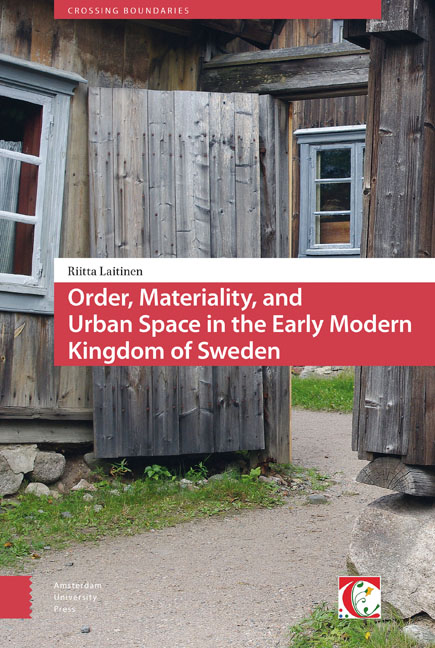Book contents
3 - Banishment and Lawbreakers
Published online by Cambridge University Press: 12 December 2020
Summary
Banishment, Law and Crime
Even if suspect people were often able to find a niche of their own in the town, banishment did threaten many. Everywhere in urban Europe, banishment could be used as a tool for getting rid of people who did not fit into the ideal of a good town or into the workings of a good community. In addition to vagrancy, various other transgressions could result in expulsion.
In Turku, Agnis Olofsdotter is a fruitful example of a banished person. She was a thief and also a vagrant. As far as we can see, she had neither a permanent place to live, nor regular employment. Unlike the anonymity of most vagrants, offenders who were banished for particular crimes appeared in the Turku Court as individuals, and thus their stories can be told. In this chapter, I explore people banished for breaking particular laws, and consider how their relationship to the town figured in their destinies.
Agnis Olofsdotter was banished from town for theft, in 1639, again in 1641, and again in 1643. Her case seems to be a simple instance of an unwanted criminal. She appears in the court records for the first time in 1639, when she and two other women who had conspired with her were first sentenced to death by the Town Court, but then pardoned by the Court of Appeal, which commuted their sentences first to fines, and then to the pillory and banishment.
After being banished in 1639, however, Agnis came back, and was again caught stealing in 1641. She was again sentenced to death, but again the Court of Appeal mitigated the sentence, this time to the cutting-off of an ear and banishment. Two years later, Agnis was once more caught stealing in town. This time, the Town Court referred the case to the Court of Appeal, as the last time Agnis had escaped before the punishment could be carried out. The higher court decided to implement the earlier sentence, and Agnis left the town again. Nonetheless, two years later, in 1645, Agnis was caught stealing in the town for the last time. After a lengthy investigation, where Agnis admitted to various property crimes, she was sentenced to death and not pardoned, and was beheaded by axe on 17th March 1645.
- Type
- Chapter
- Information
- Publisher: Amsterdam University PressPrint publication year: 2017



